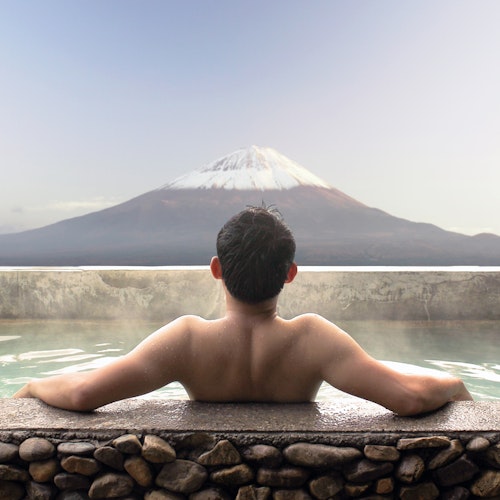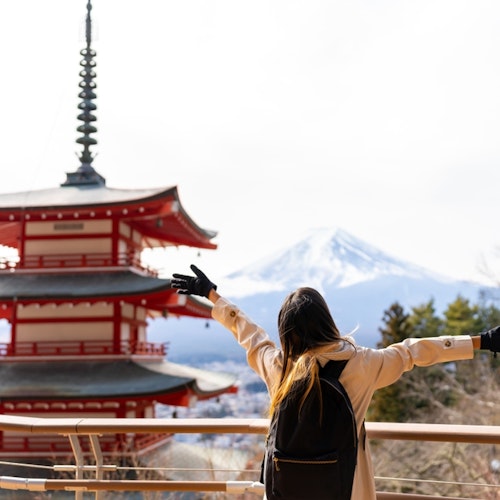
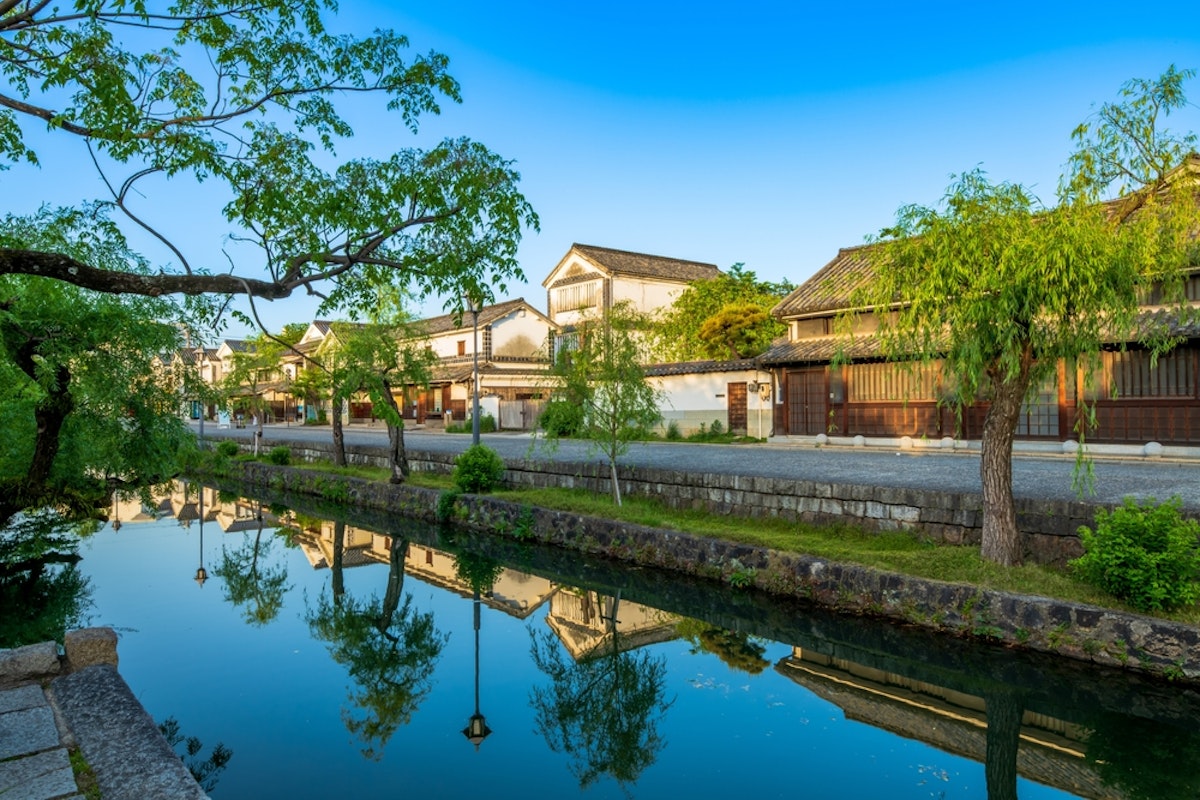
Kyoto City, once the capital of Japan, is steeped in history and tradition. Known for its stunning temples, serene gardens, and tranquil teahouses, it offers a glimpse into the country's past.
However, Japan's allure extends far beyond Kyoto's city limits. From the iconic Mount Fuji to the deer-filled parks of Nara, countless day trips promise to enrich your Japanese travel experience.
This blog post will guide you through the ten best day trips from Kyoto, each offering a unique blend of culture, history, and natural beauty. Whether you're an avid adventurer, a history buff, or a food lover, these destinations will take you off the beaten path and into the heart of Japan's rich and diverse landscapes.
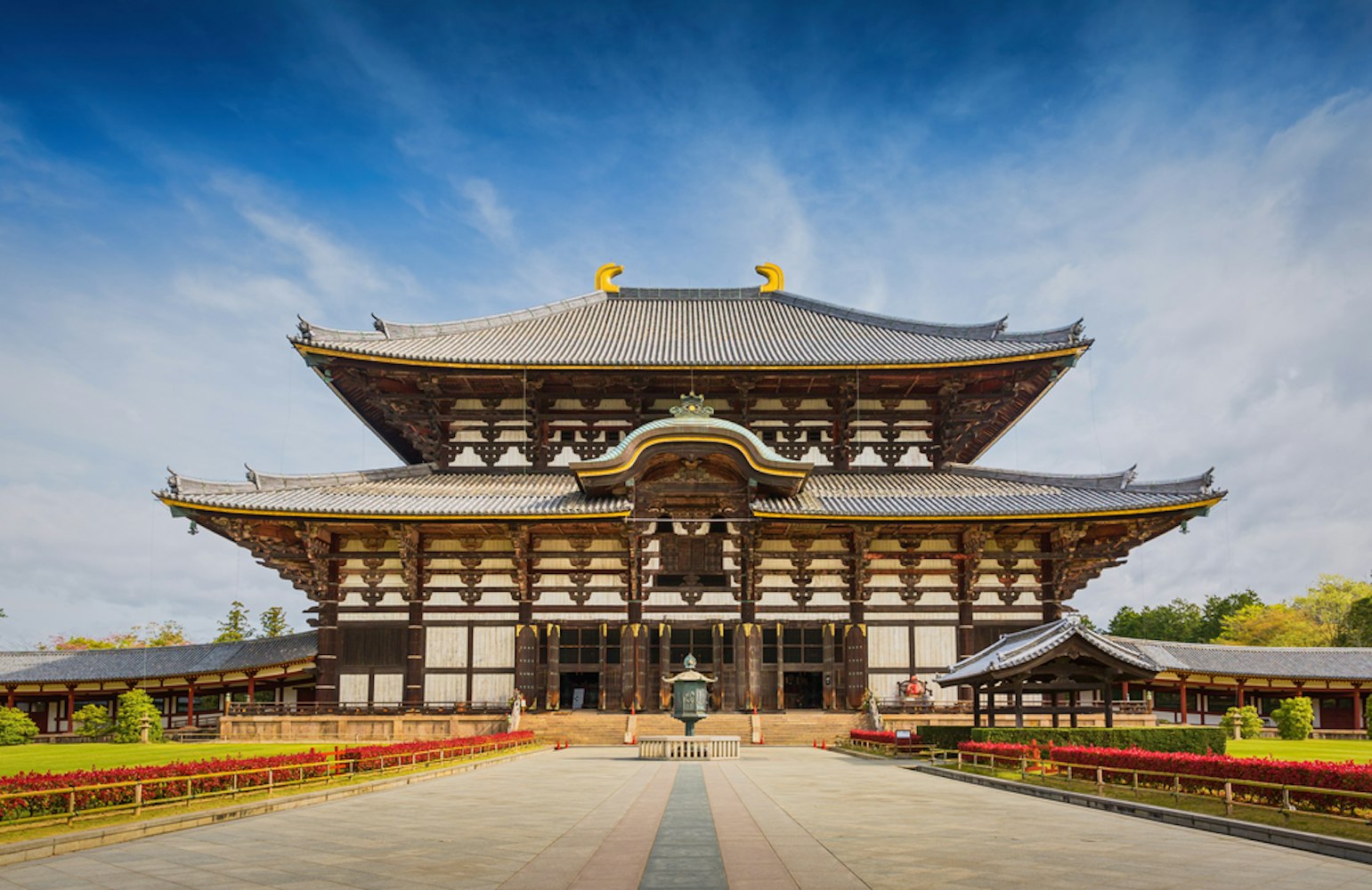
Just a short 40-kilometer journey from Kyoto, Nara is a city steeped in history and tradition. As the first permanent capital of Japan, Nara holds an essential place in the country's cultural heritage.
Nara is an ideal destination for a half-day trip from Kyoto, offering a rich cultural experience in a short amount of time. An absolute must-visit is the Todai-ji Temple, home to the world's most giant bronze statue of the Buddha Vairocana.
The temple is a feat of engineering. Although only two-thirds of its original size, it is one of the world's most significant wooden structures.
Another major attraction is Nara Park, where over 1,000 tame deer roam free. These deer are considered sacred and are a natural monument of Japan.
Visitors can buy special crackers to feed them, making for a unique and interactive experience.
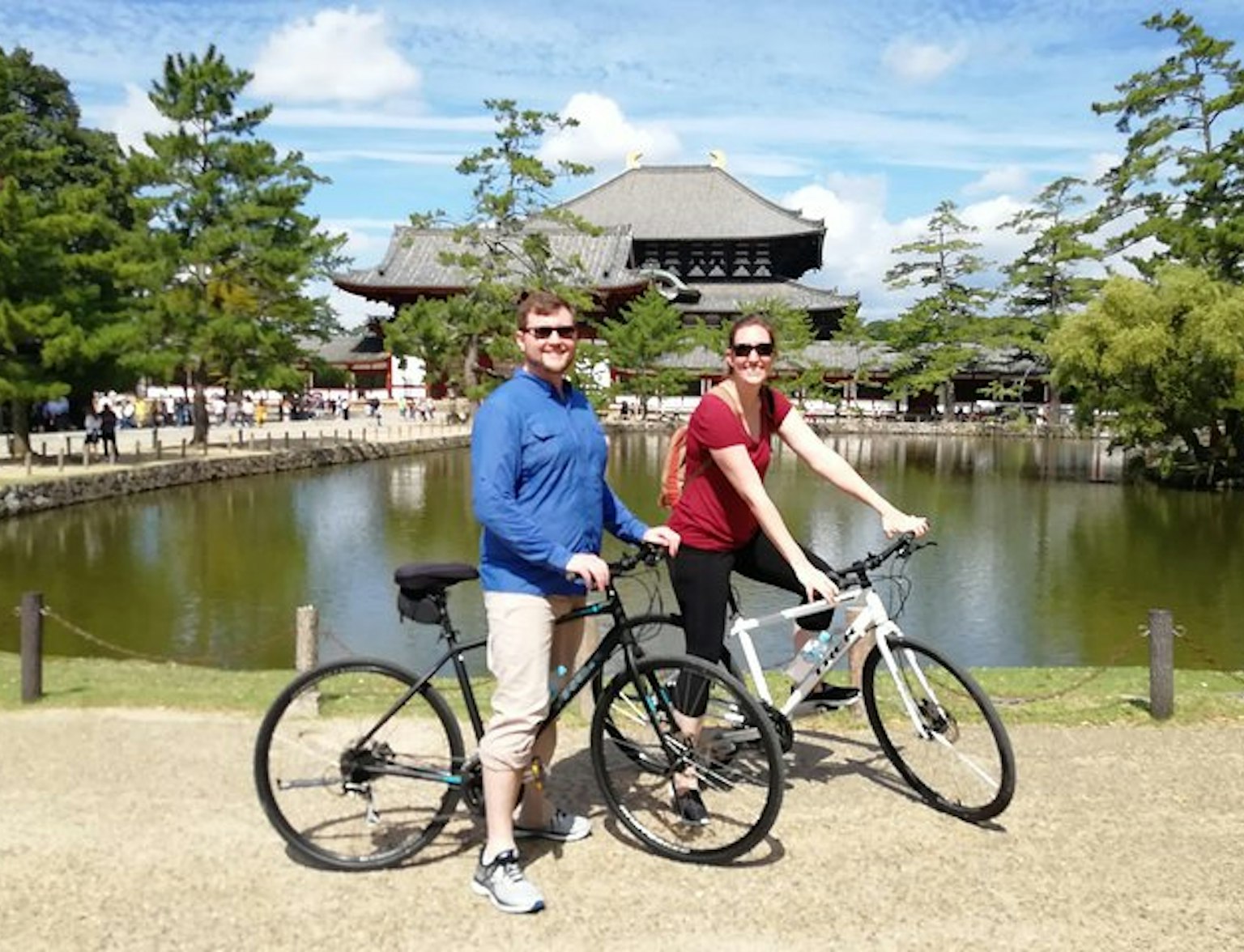
Join us on an unforgettable journey as we uncover the hidden gems of Nara.
Another site worth visiting is the Kasuga-Taisha Shrine, known for its hundreds of bronze and stone lanterns. The shrine, along with several other historical sites in Nara, is a UNESCO World Heritage Site.
Nara is also renowned for its traditional arts and crafts, including calligraphy brushes and "akahada" ceramics. Explore the local shops and take a piece of Nara's culture home.
Despite its proximity to the bustling city of Kyoto, Nara offers a peaceful retreat filled with historical treasures. Its ancient temples, friendly deer, and timeless traditions make it a must-see destination in Japan.
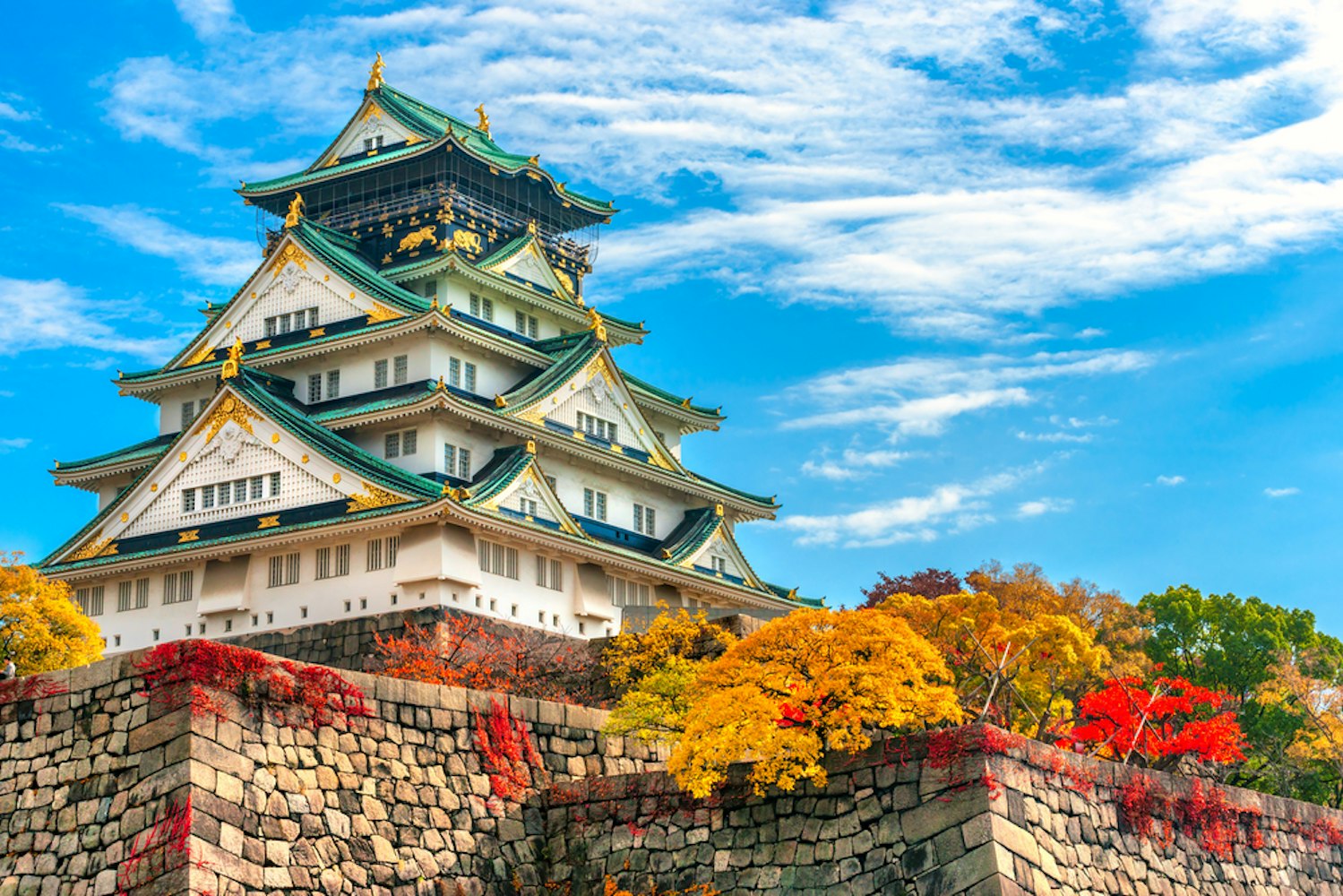
Just 55 kilometers from Kyoto, Osaka is a vibrant city where modernity and tradition coexist. Known for its dynamic food culture, cutting-edge architecture, and lively nightlife, Osaka never sleeps.
Travelers can reach Osaka quickly by taking the Shinkansen to Shin-Osaka Station, making it a convenient day trip from Kyoto. One of the must-see landmarks in Osaka is Osaka Castle.
This magnificent structure, surrounded by a moat and park, is stunning during cherry blossom season. The castle tower houses a museum that tells the castle's history and city.
If you're a foodie, don't miss out on Dotonbori, Osaka's famous food street. You'll find many restaurants and street food stalls serving everything from takoyaki (octopus balls) and okonomiyaki (savory pancakes) to sushi and ramen.
Remember to take a photo with the iconic Glico Man sign!
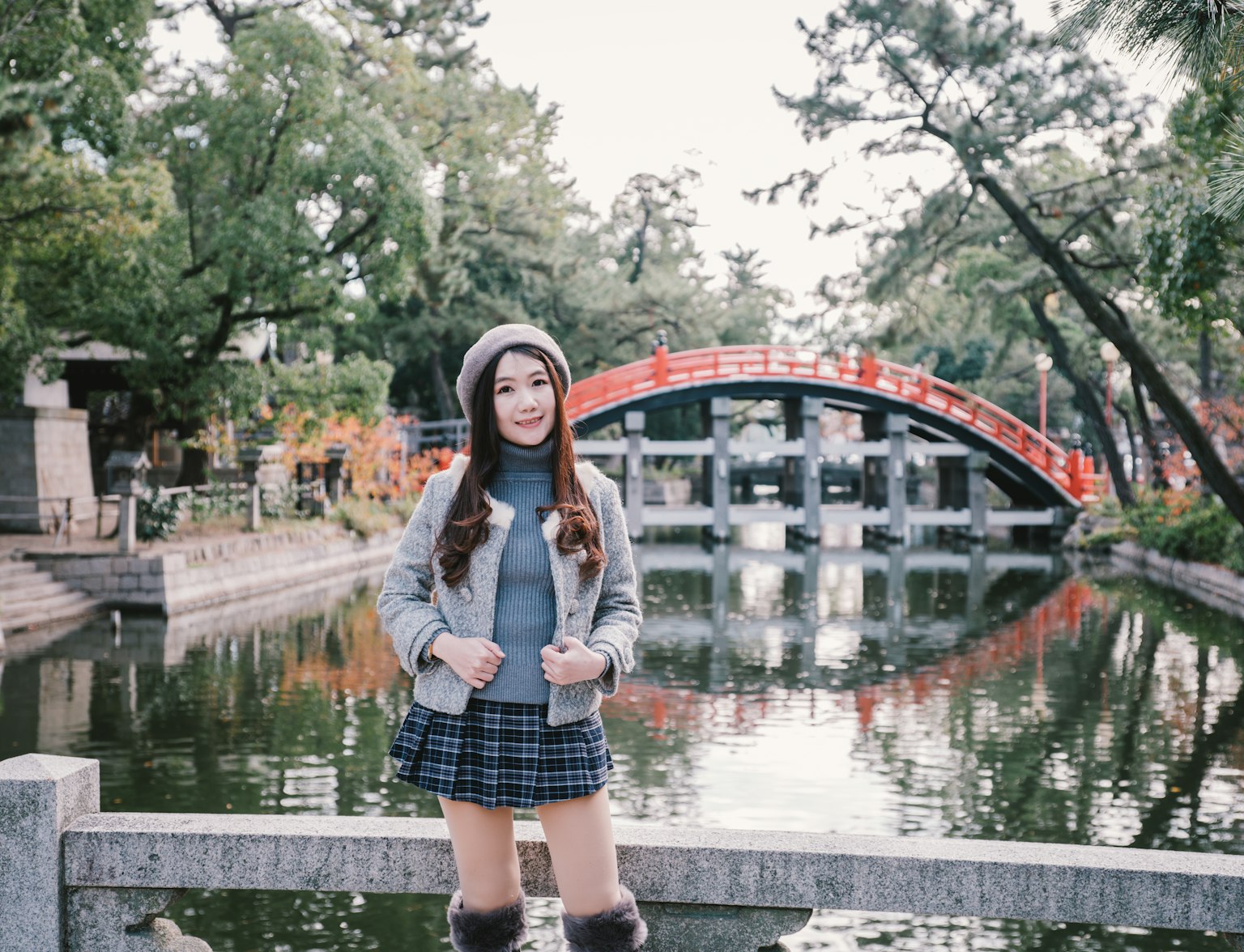
Experience the magic of Osaka with your own private guided tour!
For shopping enthusiasts, Shinsaibashi is a paradise. This bustling shopping district offers many options, from high-end boutiques to local shops selling traditional goods.
Osaka is also home to Universal Studios Japan, a theme park that offers attractions based on popular films and shows, including Harry Potter, Minions, and Jurassic Park. With its blend of cultural heritage and contemporary attractions, Osaka provides a contrasting experience to the tranquility of Kyoto.
Its energetic atmosphere, delicious cuisine, and diverse entertainment options make it a must-visit destination.
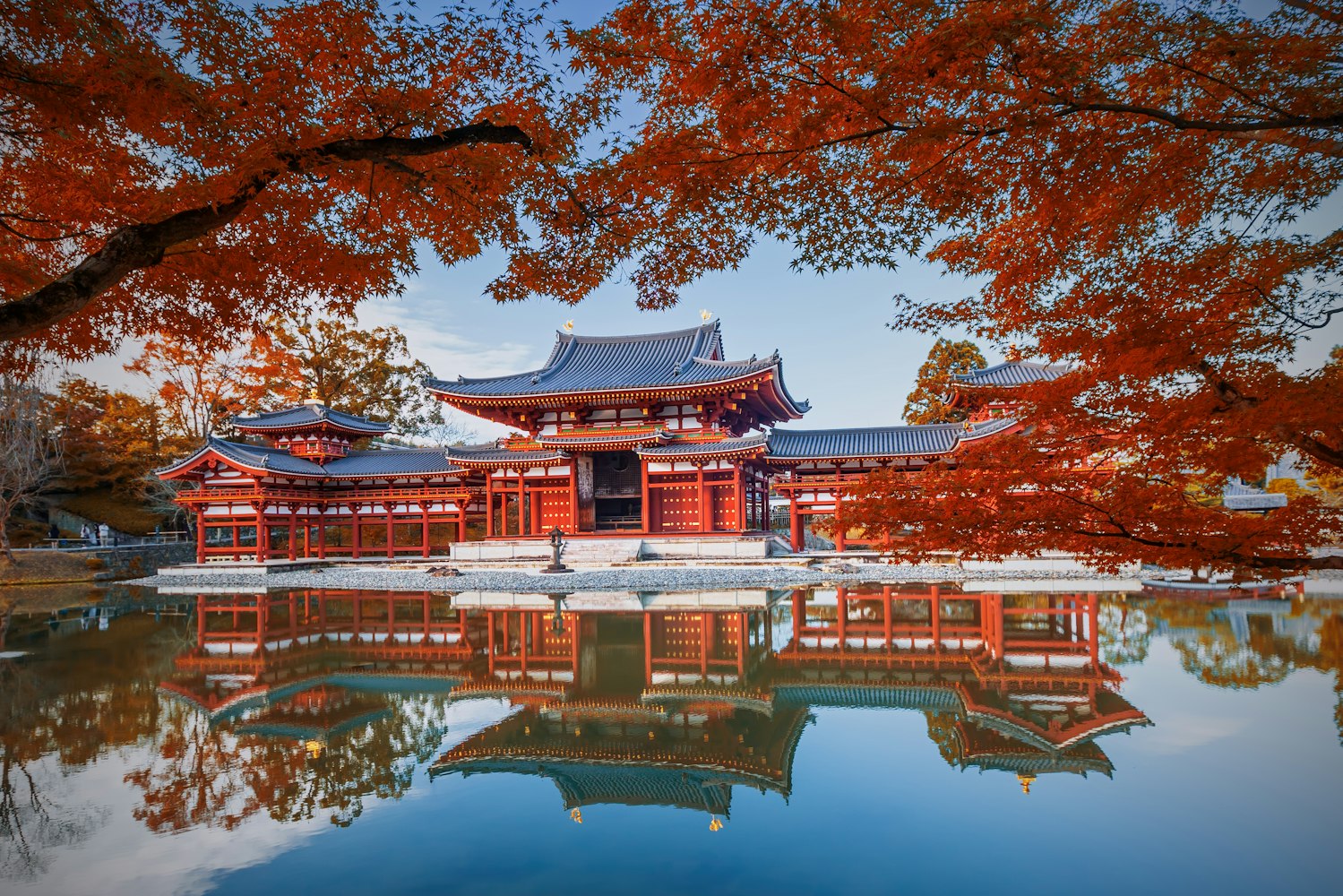
Located just 15 kilometers from Kyoto, Uji is a charming city with a rich history and cultural heritage. As the second oldest city in Japan, Uji offers visitors a chance to step back in time and immerse themselves in traditional Japanese culture.
Uji is a perfect day trip destination for Kyoto, blending historical and cultural experiences. It is most famous for its premium-quality green tea, considered among Japan's best.
The city's tea culture can be explored at various tea houses and through the tea ceremonies often held there. When you're here, don't miss the chance to try 'matcha' (powdered green tea)- flavored treats such as ice cream and noodles.
One of Uji's main attractions is the Byodoin Temple, a UNESCO World Heritage Site. This temple features a stunning Phoenix Hall on the Japanese 10 yen coin.
Inside the hall, you can admire a beautiful statue of Amida Buddha along with 52 wooden Bodhisattvas.
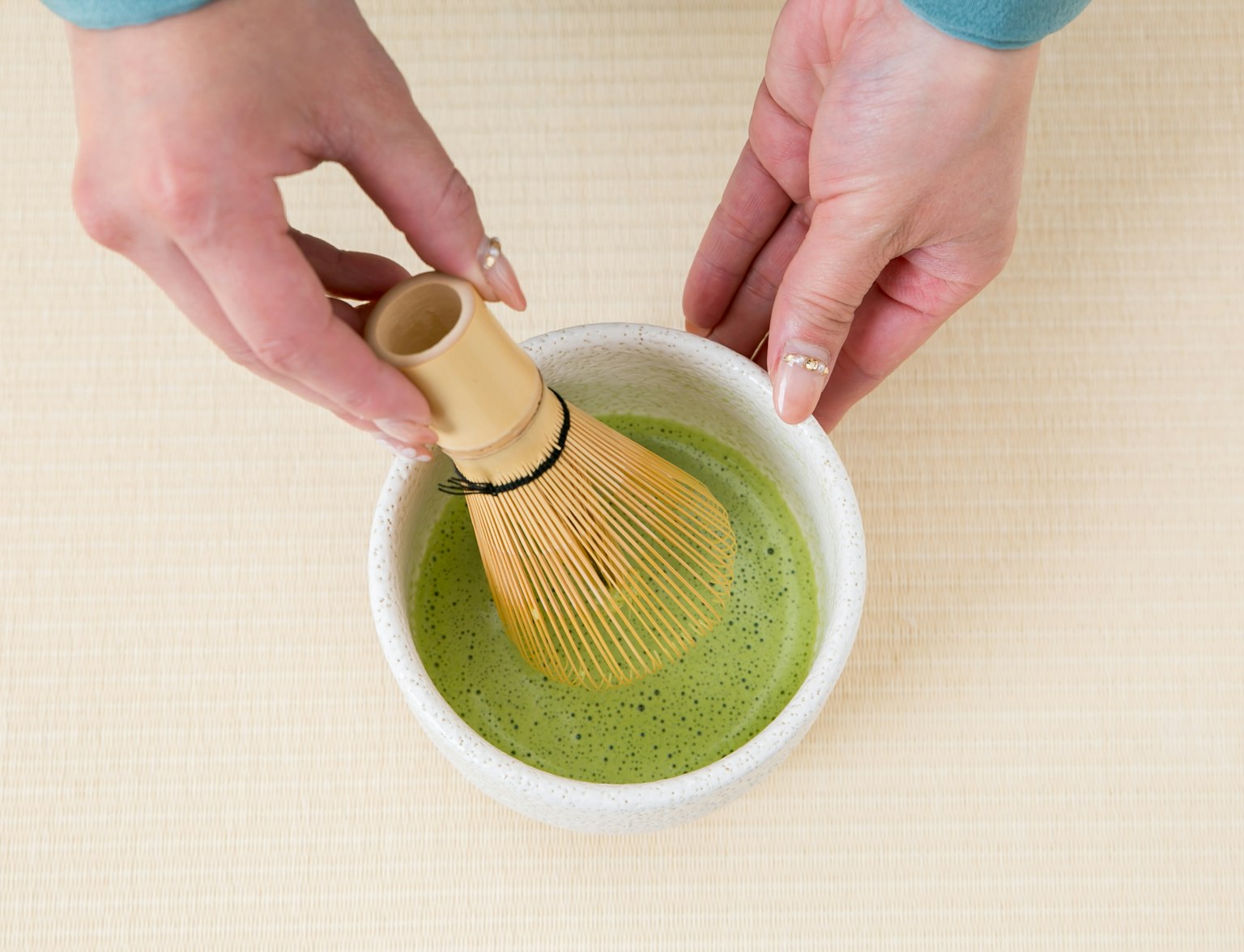
Discover the essence of Kyoto’s Uji district, immersing yourself in the world of matcha green tea.
Uji River, which flows through the city, provides a scenic backdrop for leisurely walks. In summer, the riverbank becomes the stage for traditional cormorant fishing performances.
Another notable place to visit in Uji is the Tale of Genji Museum, dedicated to the world's first novel written by a woman, Murasaki Shikibu, in the 11th century. Despite its small size, Uji packs a big punch when it comes to cultural and historical attractions.
Its idyllic landscapes, iconic landmarks, and delightful tea culture make it a must-visit destination in the Kyoto area.

Seventy-five kilometers from Kyoto, Kobe is a cosmopolitan delight between the sea and the mountains. It's a city of contrasts, where modern urban architecture meets natural beauty. Travelers can easily reach Kobe by taking a train to Sannomiya Station, the city's main transit hub.
Renowned globally for its Kobe beef, the city offers a culinary experience. However, Kobe's appeal extends beyond its food.
The city's maritime history has left a strong Western influence, evident in the historic district of Kitano. Here, you can find well-preserved foreign residences, known as Ijinkan, which offer a glimpse into the city's past as an international port.
The iconic Kobe Port Tower provides a panoramic view of the city and its harbor. Meanwhile, the nearby Meriken Park is a waterfront park that houses several memorials and artworks, including a monument dedicated to the Great Hanshin Earthquake.
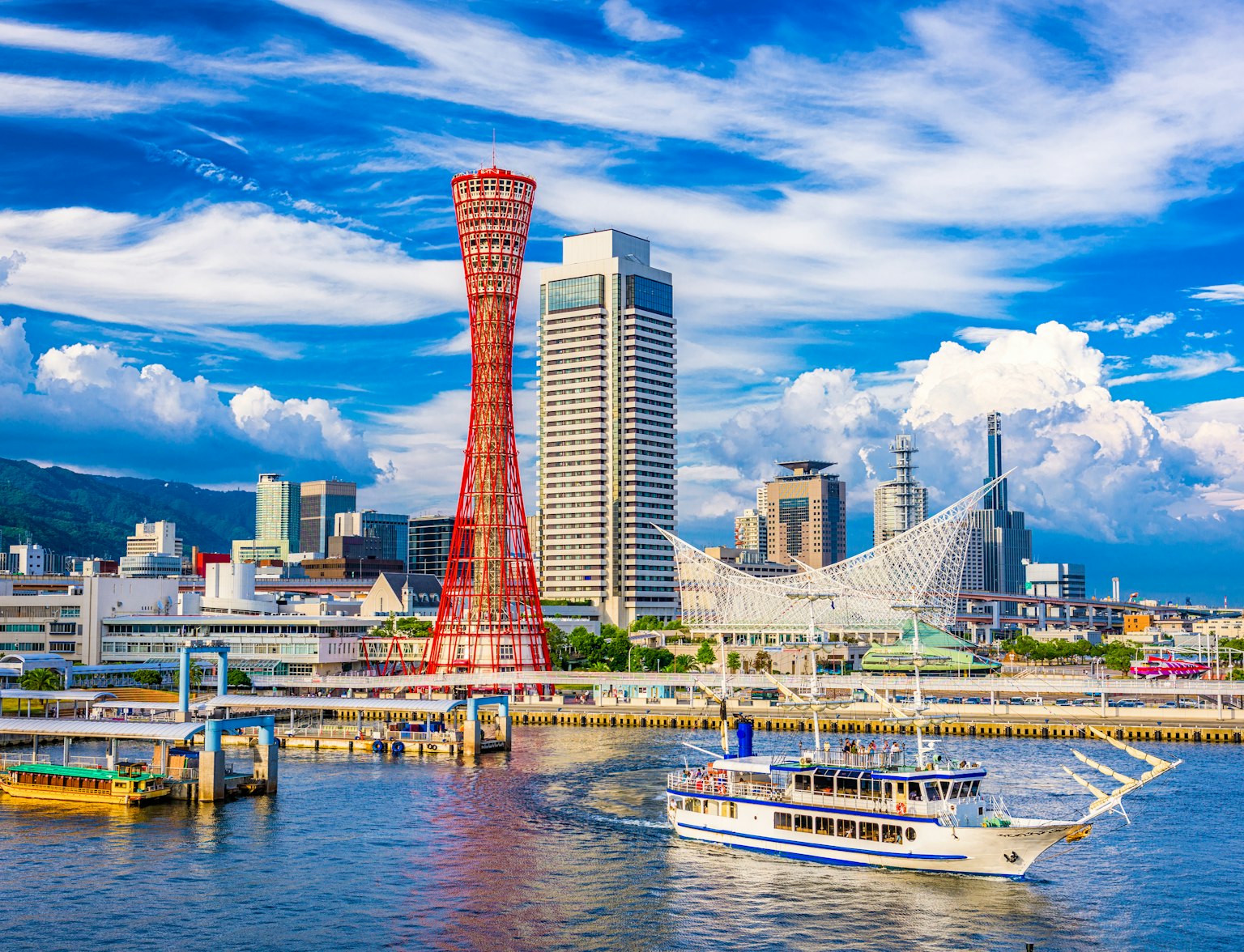
Discover the beauty of Kobe from north to south on this full-day private guided tour.
The Mt. Rokko range, which serves as a stunning backdrop to the city, offers hiking trails and an observatory with breathtaking views of the cityscape below. The Arima Onsen, located on the outskirts of Kobe, is one of Japan's oldest hot spring resorts, perfect for those seeking relaxation.
Kobe is a city that seamlessly blends tradition with modernity, making it an ideal day trip destination from Kyoto. Kobe has something to offer everyone, whether you're a foodie, a history buff, or a nature lover.
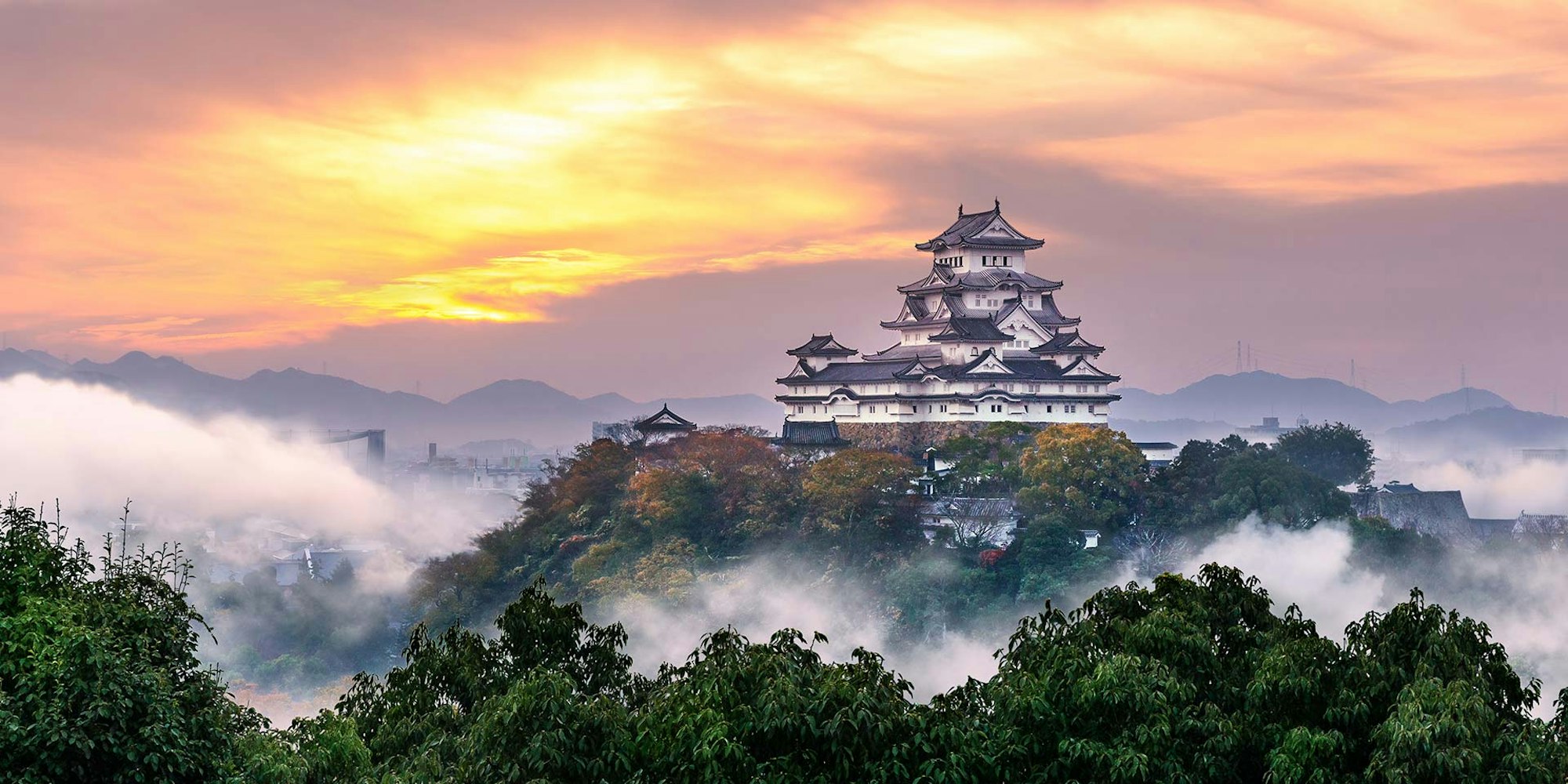
Himeji, located 95 kilometers from Kyoto, is home to one of Japan's most iconic landmarks—Himeji Castle. This UNESCO World Heritage Site, also known as White Heron Castle due to its elegant white exterior, is one of the best-preserved examples of Japanese castle architecture.
While Himeji is a great day trip, consider an overnight trip to explore its historical and cultural offerings fully. The castle, with its intricate defense systems and stunning views over Himeji, is the main attraction, but there's more to this city than just its castle.
Adjacent to the castle grounds is the Koko-en Garden, a beautifully landscaped garden that recreates the ambiance of the Edo period. The Himeji City Museum of Art, which houses an extensive collection of Japanese and Western art, is also in Himeji.
The museum's architecture, a blend of traditional and contemporary elements, is a sight. For those interested in history and culture, the Engyo-ji temple, a 1000-year-old temple complex on Mt. Shosha, offers a serene escape.
The temple is famous for its large wooden pavilion, which was used as a filming location for the Hollywood movie The Last Samurai.
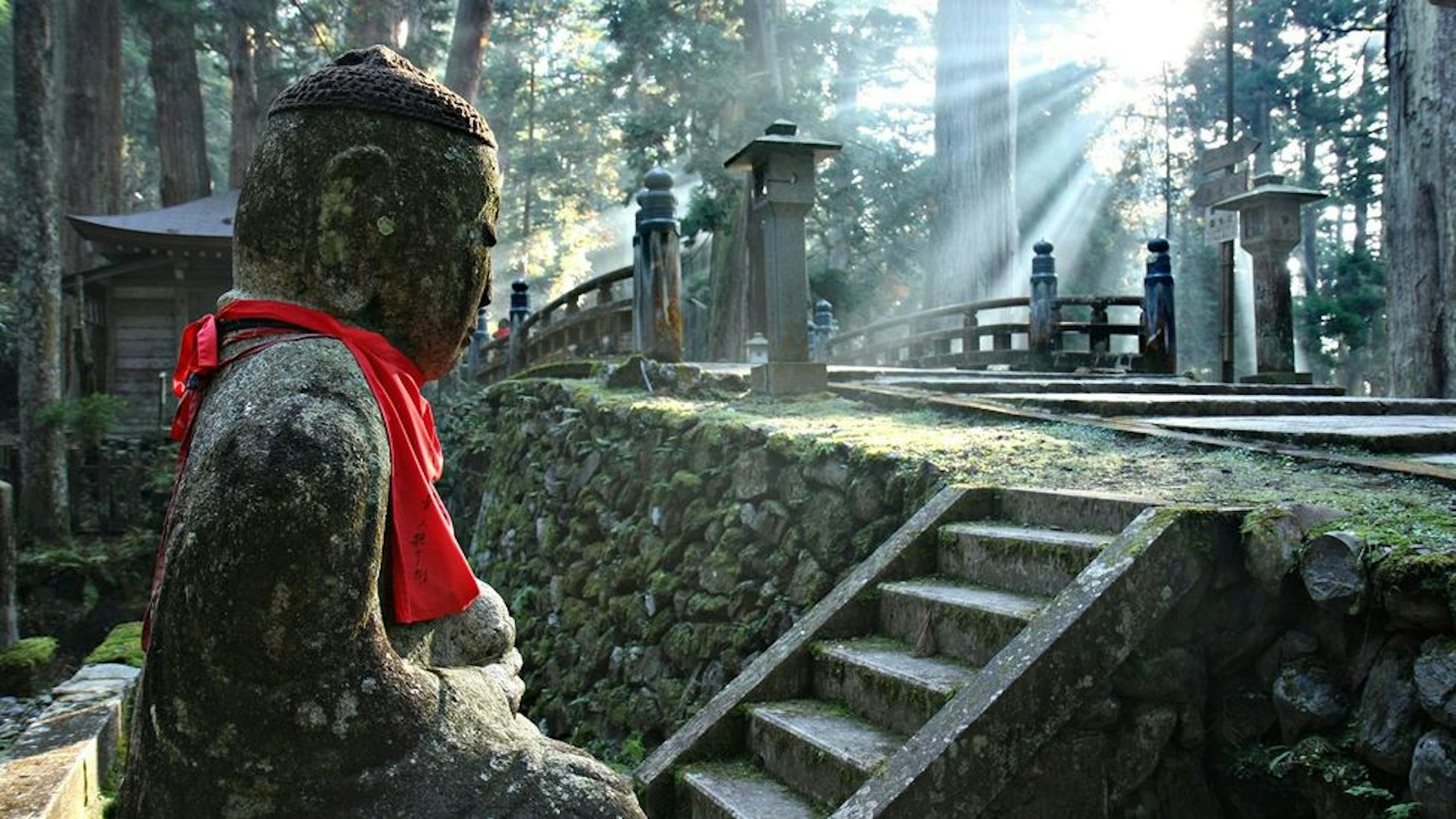
Located 90 kilometers from Kyoto, Koya-san, also known as Mount Koya, is a sacred town nestled atop a mountain plateau amidst the mountain's eight peaks. Revered as the center of Shingon Buddhism, an essential Buddhist sect in Japan, it offers a unique spiritual experience.
Travelers can take the JR Hashidate Limited Express from Kyoto Station to reach Koya-san, making the journey convenient and comfortable. Founded in the 9th century by Kobo Daishi, one of Japan's most significant religious figures, Koya-san hosts over 100 temples.
Many of these temples offer lodging to visitors, providing an immersive experience of monastic life, including public baths, tatami rooms, and vegetarian monk cuisine. The most sacred area of Koya-san is the Okunoin Cemetery, the largest in Japan.
Over 200,000 tombstones line the path to Kobo Daishi's mausoleum, and the walk is tranquil and mystical under the towering cedar trees. Visitors can also experience the Danjo Garan, a complex of temples, halls, pagodas, and Buddhist statues.
Kongobuji Temple, the head temple of Shingon Buddhism, is another highlight, known for its beautiful rock garden. Koya-san's secluded location, surrounded by thick forests and crisp mountain air, adds to its serene and mystical atmosphere.
It's not just a place to visit but to unwind, reflect, and connect with a part of Japan's spiritual history. Whether seeking spiritual insight or a peaceful retreat, Koya-san is a worthwhile destination.
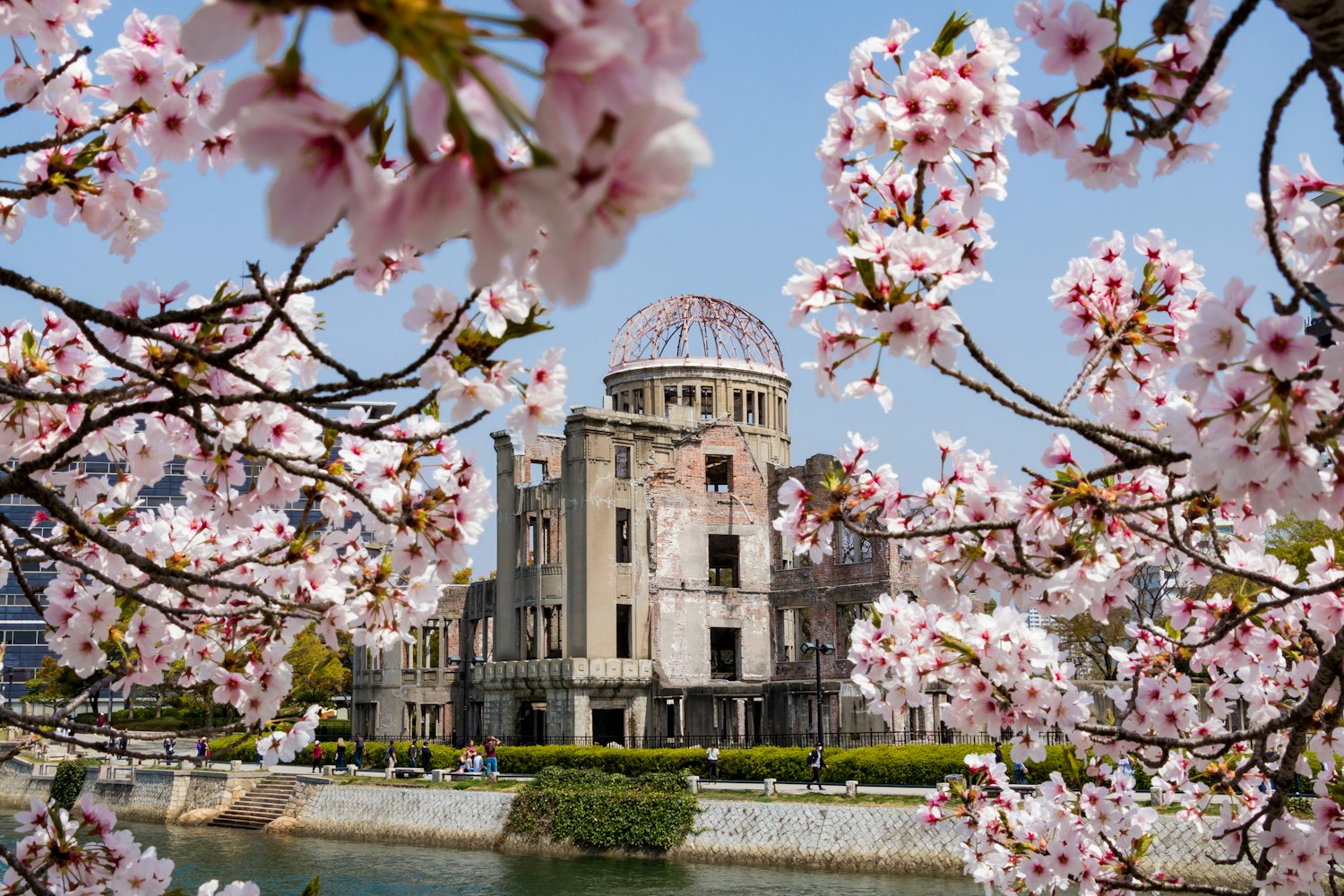
Situated 360 kilometers from Kyoto, Hiroshima has risen from the ashes of World War II with a message of peace and resilience. Known globally for its tragic past, Hiroshima today is a beacon of hope and renewal.
The city's most poignant symbol, the Hiroshima Peace Memorial Park, is a must-visit. The park is home to numerous monuments, including the Genbaku Dome (Atomic Bomb Dome), one of the few structures left standing near the hypocenter of the atomic bomb explosion in 1945.
It stands as a stark reminder of the devastation caused by nuclear weapons.
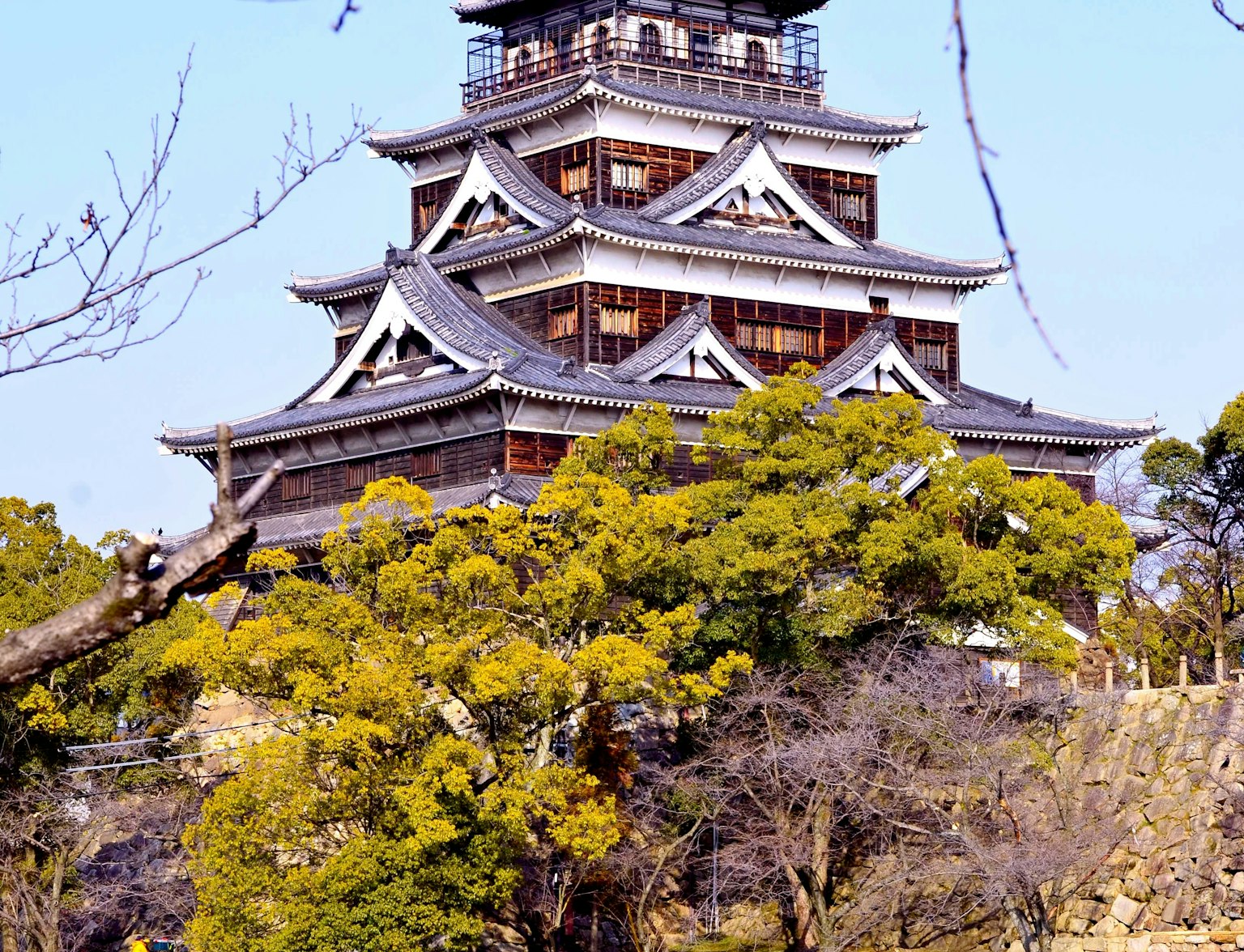
Explore Hiroshima with a local guide on a personalized 6-hour tour.
Beyond its historical significance, Hiroshima offers a rich cultural experience. The city is known for its unique style of okonomiyaki, a savory pancake made with various ingredients.
The Okonomi-mura, a three-story building filled with okonomiyaki restaurants, is a food lover's paradise. A short ferry ride away lies Miyajima Island, officially known as Itsukushima.
The island is home to the famous torii gate at Itsukushima Shrine, which appears to float on water during high tide. The island also offers beautiful hiking trails and the opportunity to see wild deer up close.
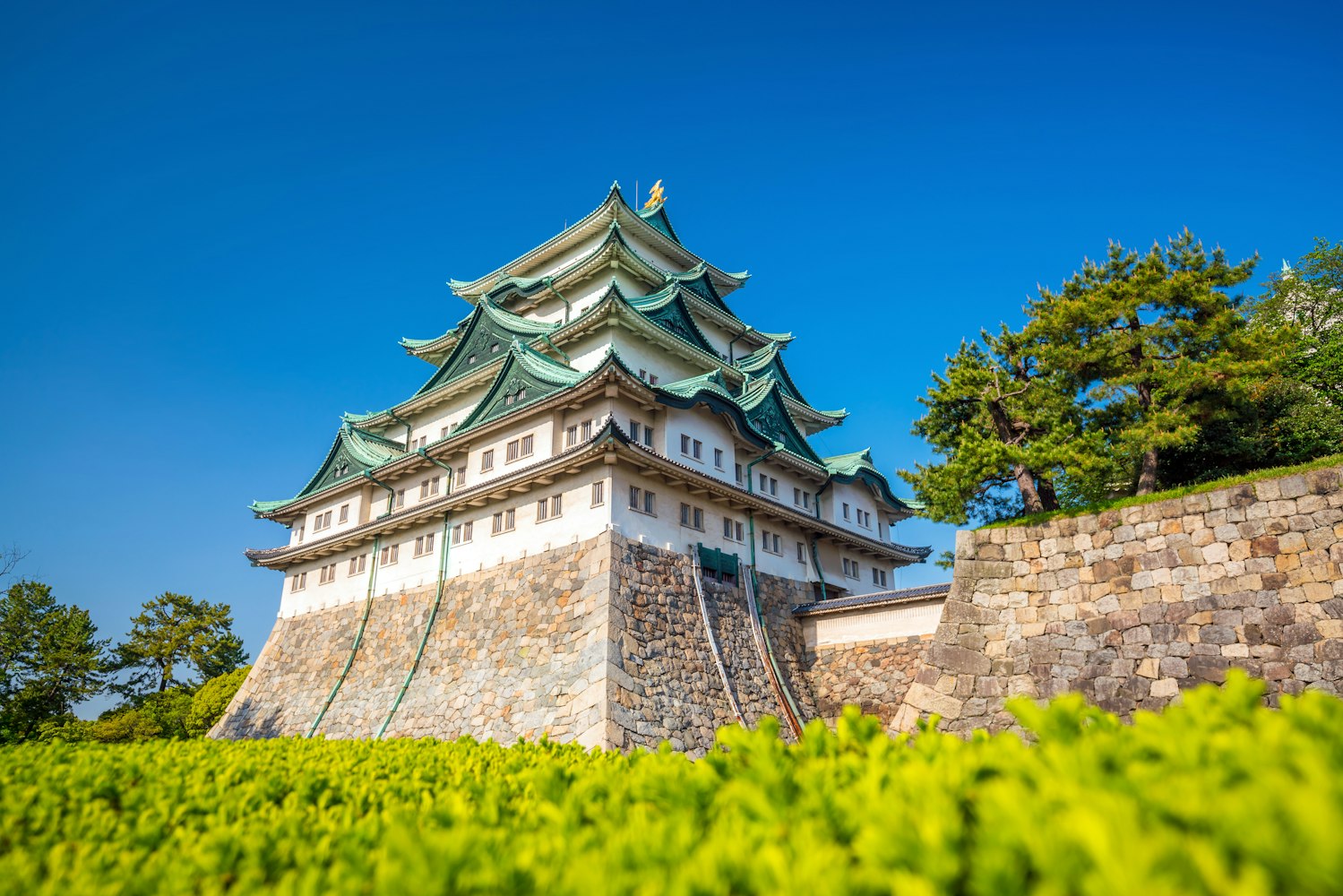
Only 130 kilometers from Kyoto, Nagoya is Japan's fourth-largest city and a hub of industry and commerce. While it may not have the historical allure of Kyoto or the bustling energy of Tokyo, Nagoya offers its unique blend of modernity and tradition.
Travelers can reach Nagoya by taking the Shinkansen from Shin-Osaka Station, making it a convenient day trip from Kyoto. One of the city's standout attractions is Nagoya Castle.
The castle, originally built in the 17th century, was reconstructed after World War II and remains an iconic city symbol. It's known for its golden dolphin-like creatures, called "kinshachi," that adorn the roof.

Experience the beauty of Nagoya in just one day.
The Toyota Commemorative Museum of Industry and Technology is a must-visit for those interested in technology and manufacturing. Here, you can learn about Toyota's history as a textile firm before it became a global automobile giant.
If shopping is on your agenda, visit Osu Shopping Street, a popular area that combines modern shops with traditional temples. Nagoya is also famous for its local cuisine.
Try hitsumabushi, a grilled eel dish, and tebasaki, Nagoya-style chicken wings.
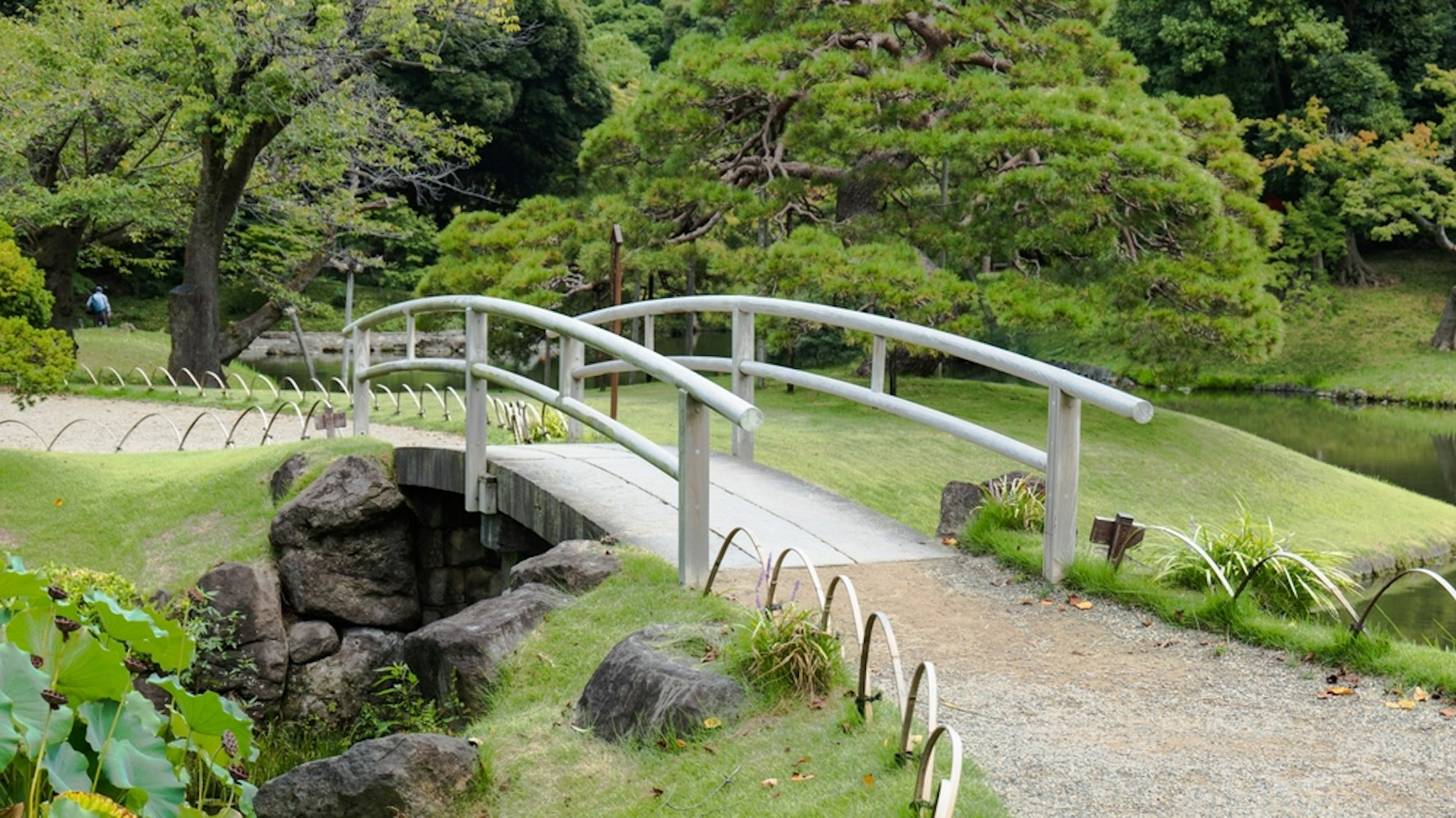
A mere 160 kilometers from Kyoto, Okayama is a charming city that offers a pleasant blend of traditional and contemporary attractions. Known for its mild climate and called the "Land of Sunshine," Okayama provides a warm welcome to its visitors.
One of Japan's most renowned landscapes, the Korakuen Garden, is at the city's heart. Built in the 17th century, it's considered one of the three great gardens of Japan.
The meticulously maintained garden features vast lawns, tranquil ponds, tea houses, and a hilltop viewpoint offering panoramic views of the surrounding area. Adjacent to Korakuen is Okayama Castle, also known as "Crow Castle" due to its black exterior.
While the main tower is a modern reconstruction, it contrasts the white castles commonly found across Japan. The city is also the gateway to the historic town of Kurashiki, with its beautifully preserved canal area.
Visitors can enjoy a picturesque canal boat ride through the historic Bikan area, taking in the charming scenery. The Bikan Historical Quarter is home to traditional wooden warehouses converted into museums, boutiques, and cafes.
Okayama is also famous for its local specialty, the sweet and juicy Okayama peaches. If you visit in the summer, make sure to try them!

A short 170-kilometer journey from Kyoto will take you to the historic city of Kurashiki. Known for its well-preserved Edo-era merchant quarter, Kurashiki is like a living museum that offers a glimpse into Japan's past.
A canal boat ride through the Bikan Historic Area offers a serene way to experience Kurashiki's Edo-era charm. The city's main attraction is the Bikan Historic Area, where white-walled wooden warehouses line a scenic canal.
These beautiful buildings, once used for storing rice, have now been transformed into various museums, shops, and cafes. The canal, complete with traditional wooden boats and weeping willows, creates a picturesque scene from a painting.
One of the standout museums in Kurashiki is the Ohara Museum of Art, which boasts an impressive collection of Western art—the first of its kind in Japan. Here, you can admire works by renowned artists like El Greco, Matisse, and Picasso.
Kurashiki is also known for its denim industry. Kojima district, often called the birthplace of Japanese denim, is filled with shops where you can buy high-quality jeans and other denim goods.
Another interesting spot is Ivy Square, a red-brick complex once a cotton mill. It now houses a hotel, restaurants, and a brewery.
Whether you're a history buff, an art lover, or a shopping enthusiast, Kurashiki has something for everyone. Its old-world charm and vibrant cultural scene make it a worthwhile stop on your journey through Japan.
Kyoto Station is not just a gateway to the city itself but also a launchpad for some of Japan's most rewarding day trips. With the convenience of the Japan Rail Pass, you can hop on JR trains, including the speedy Shinkansen bullet trains, and explore various nearby cities and attractions.
Here are some top picks for day trips from Kyoto Station:
Osaka: Just a 30-minute ride on the JR Kobe Line from Kyoto Station to Osaka Station, Osaka is a bustling metropolis known for its vibrant food scene and modern attractions. Wander through the lively Dotonbori district, savor street food delights, and visit the historic Osaka Castle, which offers panoramic city views.
Nara: A one-hour journey on the JR Nara Line from Kyoto Station to Nara Station brings you to a historical city. Nara is home to the magnificent Todai-ji Temple, a UNESCO World Heritage Site, and the serene Nara Park, where you can feed and interact with friendly deer.
Himeji: In about an hour, travel on the JR Kobe Line from Kyoto Station to Himeji Station to explore the iconic Himeji Castle, another UNESCO World Heritage Site. This stunning white castle, often called the "White Heron Castle," is a masterpiece of Japanese architecture. Take advantage of the nearby Koko-en Garden, a beautifully landscaped Edo-period garden.
These destinations offer a perfect blend of cultural heritage, historical landmarks, and modern attractions, making them ideal for a memorable day trip from Kyoto.
Embarking on any of these day trips from Kyoto opens a gateway to Japan's vast cultural and natural wealth. From the serene temples of Nara to the breathtaking vistas of the Seto Inland Sea, each destination enriches your journey with unique stories, stunning landscapes, and deep historical roots.
These excursions offer a glimpse into the diverse facets of Japanese life, past and present, allowing travelers to weave their narratives in the rich tapestry of experiences. So pack your bags, lace up your walking shoes, and prepare for the adventure that awaits beyond the borders of Kyoto.
Where can you take a day trip from Kyoto?
There are numerous destinations for a Kyoto day trip, including Nara, known for its historic sites and deer; Uji, a haven for matcha lovers; Arashiyama, a district in Kyoto known for its bamboo groves and temples; and Himeji, home to the beautiful Himeji Castle.
How many days in Kyoto is enough?
The number of days needed in Kyoto depends on your interest and itinerary. However, a standard recommendation is to spend at least three to four full days in Kyoto. It allows enough time to visit the city's major sights and take a few day trips to nearby areas.
Can Hiroshima be a day trip from Kyoto?
Yes, Hiroshima can be a day trip from Kyoto. The Shinkansen (bullet train) takes about two hours to get there. Spend the day exploring Peace Memorial Park and Hiroshima Castle, and try the local cuisine.
Is it worth visiting Kobe?
Absolutely! Kobe offers a unique blend of natural beauty, architecture, and culture. It's well-known for its scenic harbor, vibrant nightlife, and the world-renowned Kobe beef. A day trip to Kobe can be a delightful addition to your itinerary.
Which is better, Kobe or Nara?
Both Kobe and Nara offer unique experiences. Nara is a historical treasure trove with ancient temples and friendly deer roaming around Nara Park. On the other hand, Kobe is a modern city known for its fashion scene, sophisticated cuisine, and stunning harbor views. Choose based on your interests.
Is Kobe closer to Osaka or Kyoto?
Kobe is closer to Osaka. Traveling from Osaka by train takes about 20-30 minutes, while Kyoto takes 50-60 minutes.
